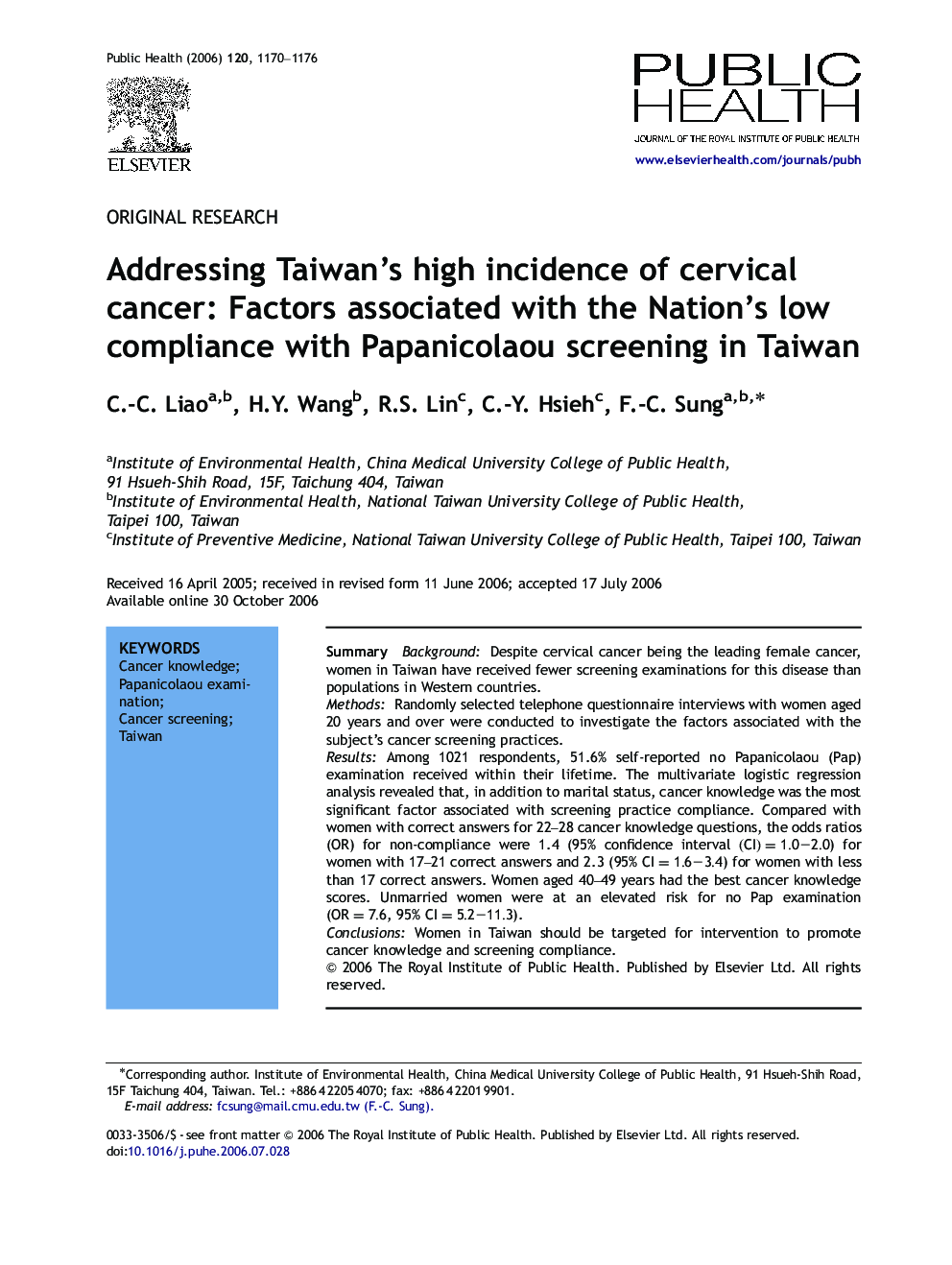| Article ID | Journal | Published Year | Pages | File Type |
|---|---|---|---|---|
| 1089228 | Public Health | 2006 | 7 Pages |
SummaryBackgroundDespite cervical cancer being the leading female cancer, women in Taiwan have received fewer screening examinations for this disease than populations in Western countries.MethodsRandomly selected telephone questionnaire interviews with women aged 20 years and over were conducted to investigate the factors associated with the subject's cancer screening practices.ResultsAmong 1021 respondents, 51.6% self-reported no Papanicolaou (Pap) examination received within their lifetime. The multivariate logistic regression analysis revealed that, in addition to marital status, cancer knowledge was the most significant factor associated with screening practice compliance. Compared with women with correct answers for 22–28 cancer knowledge questions, the odds ratios (OR) for non-compliance were 1.4 (95% confidence interval (CI)=1.0–2.0(CI)=1.0–2.0) for women with 17–21 correct answers and 2.3 (95% CI=1.6–3.4CI=1.6–3.4) for women with less than 17 correct answers. Women aged 40–49 years had the best cancer knowledge scores. Unmarried women were at an elevated risk for no Pap examination (OR=7.6OR=7.6, 95% CI=5.2–11.3CI=5.2–11.3).ConclusionsWomen in Taiwan should be targeted for intervention to promote cancer knowledge and screening compliance.
